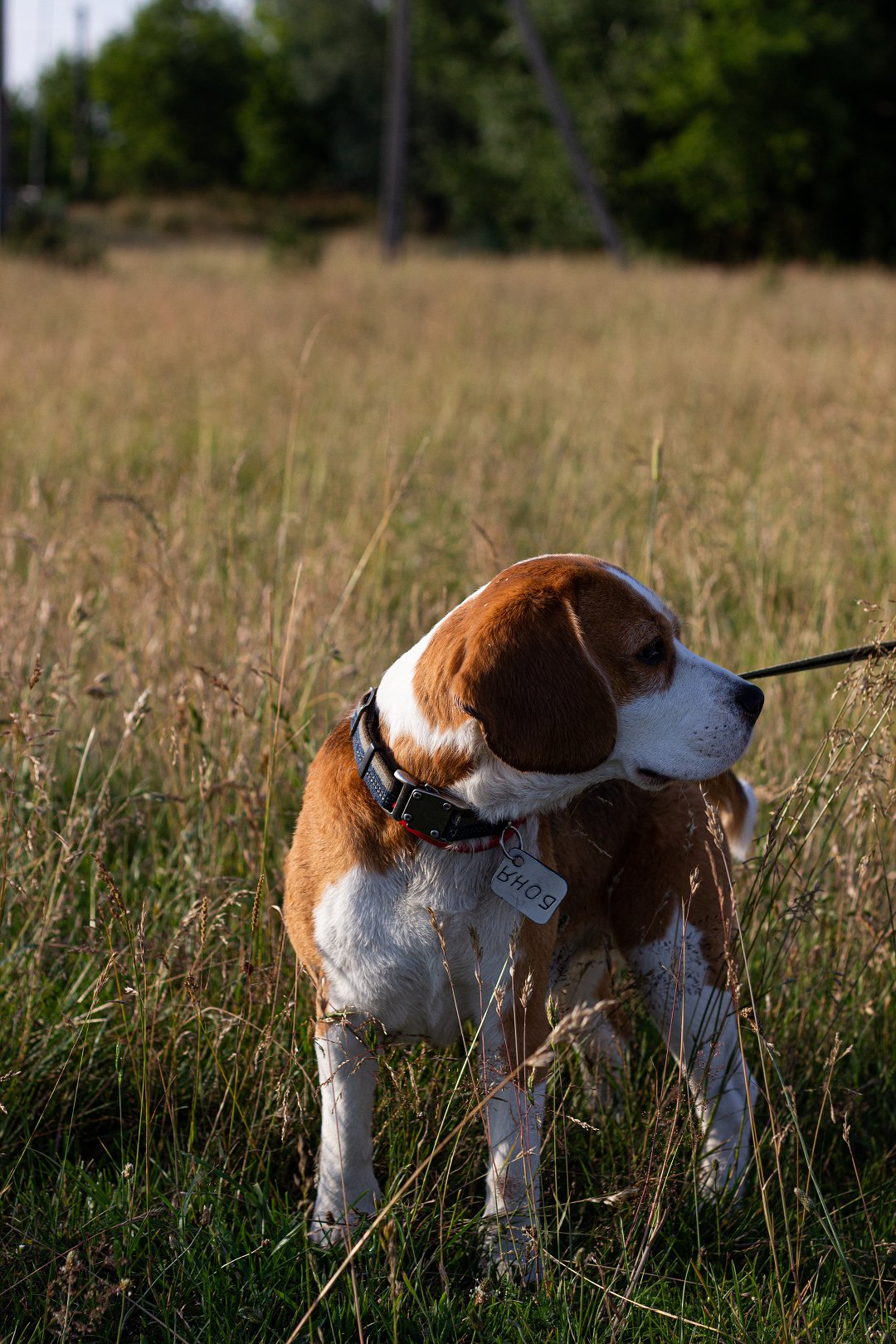Table of Contents
- 1 Introduction: Understanding the Needs of Neglected Beagles: A Comprehensive Guide
- 2 Essential Tips for Caring for a Neglected Beagle: From Nutrition to Training
- 3 Transforming the Life of a Neglected Beagle: Step-by-Step Care Guide
- 4 FAQs About: How to Care for a Neglected Beagle
- 4.1 How can I help a neglected beagle adjust to a new environment?
- 4.2 What should I feed a neglected beagle to improve their health?
- 4.3 How can I help a neglected beagle overcome behavioral issues?
- 4.4 How often should I groom a neglected beagle?
- 4.5 What kind of exercise does a neglected beagle need?
- 4.6 How can I help a neglected beagle socialize with other dogs and people?
Introduction: Understanding the Needs of Neglected Beagles: A Comprehensive Guide
Are you wondering how to care for a neglected beagle? Look no further! In this comprehensive guide, we will explore the essential tips and steps to transform the life of a neglected beagle. Neglected beagles often require special attention and care due to their past experiences of animal neglect. By understanding their unique needs and providing them with the right care, you can make a remarkable difference in their lives. From nutrition to training, grooming to socialization, we will cover it all. So, let’s dive in and discover the secrets to giving a neglected beagle the love and care they deserve.
Neglected beagles have often endured a lack of proper care, love, and attention. As a result, they may exhibit various physical and behavioral issues. In this guide, we will not only address their immediate needs but also delve into the underlying causes of neglect and how it impacts their overall well-being. By understanding the root causes, we can better empathize with these neglected dogs and provide them with the necessary support. So, let’s begin by exploring the essential tips for caring for a neglected beagle and laying the foundation for their transformation.
Essential Tips for Caring for a Neglected Beagle: From Nutrition to Training
Taking care of a neglected beagle can be a rewarding experience, but it also requires a lot of patience, dedication, and knowledge. In this section, we will explore essential tips for caring for a neglected beagle, covering various aspects such as nutrition, training, grooming, and socialization.
Nutrition
Proper nutrition is crucial for the overall health and well-being of a neglected beagle. Here are some essential tips to ensure they receive the right diet:
- Consult a veterinarian: A neglected beagle may have specific dietary needs or health issues that require professional guidance. Seek advice from a veterinarian to determine the best diet for your beagle.
- Balanced diet: Provide your beagle with a balanced diet that includes high-quality dog food, rich in protein, vitamins, and minerals. Avoid feeding them table scraps or foods that are toxic to dogs, such as chocolate, onions, or grapes.
- Portion control: Beagles are prone to obesity, so it’s important to monitor their food intake and avoid overfeeding. Follow the feeding guidelines provided by the dog food manufacturer and adjust portion sizes based on your beagle’s age, weight, and activity level.
Training
Training a neglected beagle is essential to help them overcome any behavioral issues they may have developed due to neglect. Here are some tips to get started:
- Positive reinforcement: Use positive reinforcement techniques, such as treats, praise, and rewards, to encourage desired behaviors. This will help build a strong bond between you and your beagle and make the training process more enjoyable.
- Consistency: Be consistent with your training methods and expectations. Set clear rules and boundaries, and reinforce them consistently. This will help your beagle understand what is expected of them and reduce confusion.
- Patience and persistence: Remember that neglected beagles may have had limited training or socialization in the past, so it may take time for them to learn new behaviors. Be patient, stay calm, and keep practicing regularly.
By following these essential tips for nutrition and training, you can provide the best care for your neglected beagle and help them thrive in their new home. In the next section, we will explore step-by-step guidelines for transforming the life of a neglected beagle, covering various aspects of their care and well-being. Stay tuned for valuable insights on grooming, exercise, and behavior.
Transforming the Life of a Neglected Beagle: Step-by-Step Care Guide
Caring for a neglected beagle can be a challenging but rewarding experience. By providing the necessary care and attention, you can help transform their life and give them the love and care they deserve. This step-by-step care guide will outline the essential aspects of caring for a neglected beagle, from their physical health to their emotional well-being.
1. Assessing the Beagle’s Health and Medical Needs
The first step in caring for a neglected beagle is to assess their overall health and address any medical needs they may have. This includes taking them to a veterinarian for a thorough examination and vaccinations. It is important to check for any underlying health issues, such as parasites, infections, or dental problems, and provide the necessary treatment.
2. Establishing a Nutritious Diet
Proper nutrition is crucial for a neglected beagle’s well-being. Consult with a veterinarian to determine the best diet for your beagle, taking into consideration their age, weight, and any specific dietary requirements. Ensure they are receiving a balanced diet that includes high-quality dog food, fresh water, and occasional healthy treats.
3. Providing Regular Exercise and Mental Stimulation
Neglected beagles often lack regular exercise, which can lead to obesity and behavioral issues. Establish a daily exercise routine that includes both physical activities, such as walks or runs, and mental stimulation, such as puzzle toys or training sessions. This will help keep them physically fit and mentally engaged.
4. Socializing and Training
Neglected beagles may lack proper socialization and training, which can result in behavioral problems. Introduce them to new environments, people, and other animals gradually, using positive reinforcement techniques to encourage good behavior. Enroll them in obedience classes or work with a professional dog trainer to address any specific training needs.
5. Providing a Safe and Enriching Environment
Create a safe and enriching environment for your neglected beagle by providing them with a comfortable bed, toys, and a designated area for their food and water. Ensure they have access to shelter and a secure outdoor space where they can explore and play safely. Consider providing mental enrichment activities, such as puzzle toys or interactive games, to keep their minds stimulated.
Caring for a neglected beagle requires time, patience, and dedication. By following this step-by-step care guide, you can help transform their life and provide them with the love and care they deserve. Remember to consult with professionals, such as veterinarians or dog trainers, for personalized advice and support throughout the journey.
FAQs About: How to Care for a Neglected Beagle
How can I help a neglected beagle adjust to a new environment?
- Start by providing a quiet and comfortable space for your neglected beagle to decompress and feel safe.
- Gradually introduce them to new sights, sounds, and experiences to help them build confidence.
- Establish a routine and offer positive reinforcement to encourage positive behaviors.
- Patience, consistency, and understanding are key in helping a neglected beagle adjust to their new environment.
What should I feed a neglected beagle to improve their health?
- Consult with a veterinarian to determine the best diet for your neglected beagle’s specific needs.
- Choose high-quality dog food that is rich in nutrients and free from artificial additives.
- Consider incorporating fresh fruits and vegetables as healthy treats or supplements.
- Ensure your beagle has access to clean water at all times and monitor their weight to prevent obesity.
How can I help a neglected beagle overcome behavioral issues?
- Seek the assistance of a professional dog trainer or behaviorist who specializes in neglected dogs.
- Use positive reinforcement techniques such as reward-based training to encourage desired behaviors.
- Provide mental and physical stimulation through interactive toys, puzzles, and regular exercise.
- Be patient and consistent in your training efforts, understanding that it may take time for a neglected beagle to unlearn previous behaviors.
How often should I groom a neglected beagle?
- Regular grooming sessions are essential for a neglected beagle’s overall well-being.
- Brush their coat at least once a week to remove loose hair and prevent matting.
- Trim their nails regularly and clean their ears to prevent infections.
- Bathe them as needed, using a mild dog shampoo to avoid stripping their coat of essential oils.
What kind of exercise does a neglected beagle need?
- Neglected beagles may have varying exercise needs depending on their age and health condition.
- Start with short walks and gradually increase the duration and intensity as they build stamina.
- Engage them in interactive play sessions, such as fetch or puzzle games, to stimulate their mind and body.
- Regular exercise is crucial for a neglected beagle’s physical and mental well-being.
- Introduce your neglected beagle to new dogs and people gradually, in controlled and positive environments.
- Enroll them in obedience classes or socialization groups specifically designed for neglected or rescued dogs.
- Encourage positive interactions through rewards and praise when they display calm and friendly behavior.
- Patience and consistency are key in helping a neglected beagle develop healthy socialization skills.






Leave a Reply